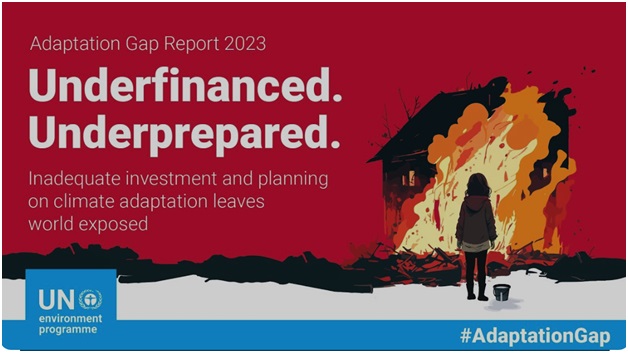Adaptation Gap Report 2023 (DownToEarth)

- 04 Nov 2023
Why in the News?
The Adaptation Gap Report states that funding for adaptation measures in developing nations has been declining and is insufficient of what is required.
About the Adaptation Gap Report:
- The Adaptation Gap Report (AGR) is an annual United Nation Enviroment Programme (UNEP) flagship publication.
- The report's primary objective is to inform the negotiators of the United Nations Framework Convention on Climate Change (UNFCCC) Member States, and the broader UNFCCC constituency, about the status and trends within climate adaptation at global and regional levels.
- AGR offers science-based recommendations to policymakers and decision-makers to enhance climate adaptation efforts in key climate-sensitive sectors.
- Since 2014, UNEP has been producing these assessments to support effective adaptation responses aligned with the UNFCCC's temperature and adaptation goals.
- The "adaptation gap" refers to the difference between actual adaptation efforts and the goals set by society, influenced by factors like climate change impacts, available resources, and competing priorities.
Key Findings of the Report:
- Adaptation costs are expected to rise significantly by 2050, especially in high-warming scenarios.
- The financial needs for adaptation are 10-18 times higher than the current international public adaptation fund flows.
- Urgent action is required to reduce greenhouse gas emissions and enhance adaptation efforts to protect vulnerable populations worldwide.
- In 2021, funding from developed countries to support adaptation projects in developing countries decreased by 15% compared to previous years.
- The report suggests seven strategies to bridge the adaptation gap, including increasing international financial support and mobilizing domestic resources.
- It also calls for a reform of the global financial system to facilitate easier access to climate-related funding from multilateral agencies such as the World Bank or the IMF.
